7 Wildlife Sanctuaries Where You Can Get Incredibly Close to Animals

Sloth friends at Aviarios del Caribe in Costa Rica. (Photo: Jenny Jozwiak on Flickr).
Once you’ve been to an animal sanctuary, it’s hard to go back to zoos. These conservation centers do away with cages, allowing their creatures to roam free while keeping them safe from predators—both animal and human. The result is a relaxed environment where visitors can get close to critters without upsetting any eco-systems or getting pecked to death by a stressed-out swan. That’s a win for everyone.
The following seven sanctuaries around the world all offer the opportunity to get up close and personal with their animals. If you’ve ever wanted a one-on-one meeting with a three-toed sloth or hoped to hand-feed a flock of fluffy cygnets, these are your dream destinations.

ZAO FOX VILLAGE
Shiroishi, Japan
 One of the sleepy vulpine Village residents. (Photo: satoshi miura on Flickr.)
One of the sleepy vulpine Village residents. (Photo: satoshi miura on Flickr.)
Six kinds of foxes await you at this wooded sanctuary, located at the base of Mount Zao in Miyagi Prefecture. Buy some fox snacks at the on-site store and you will likely attract a troop of curious Japanese Red Foxes wherever you roam.
DUKE LEMUR CENTER
Durham, North Carolina
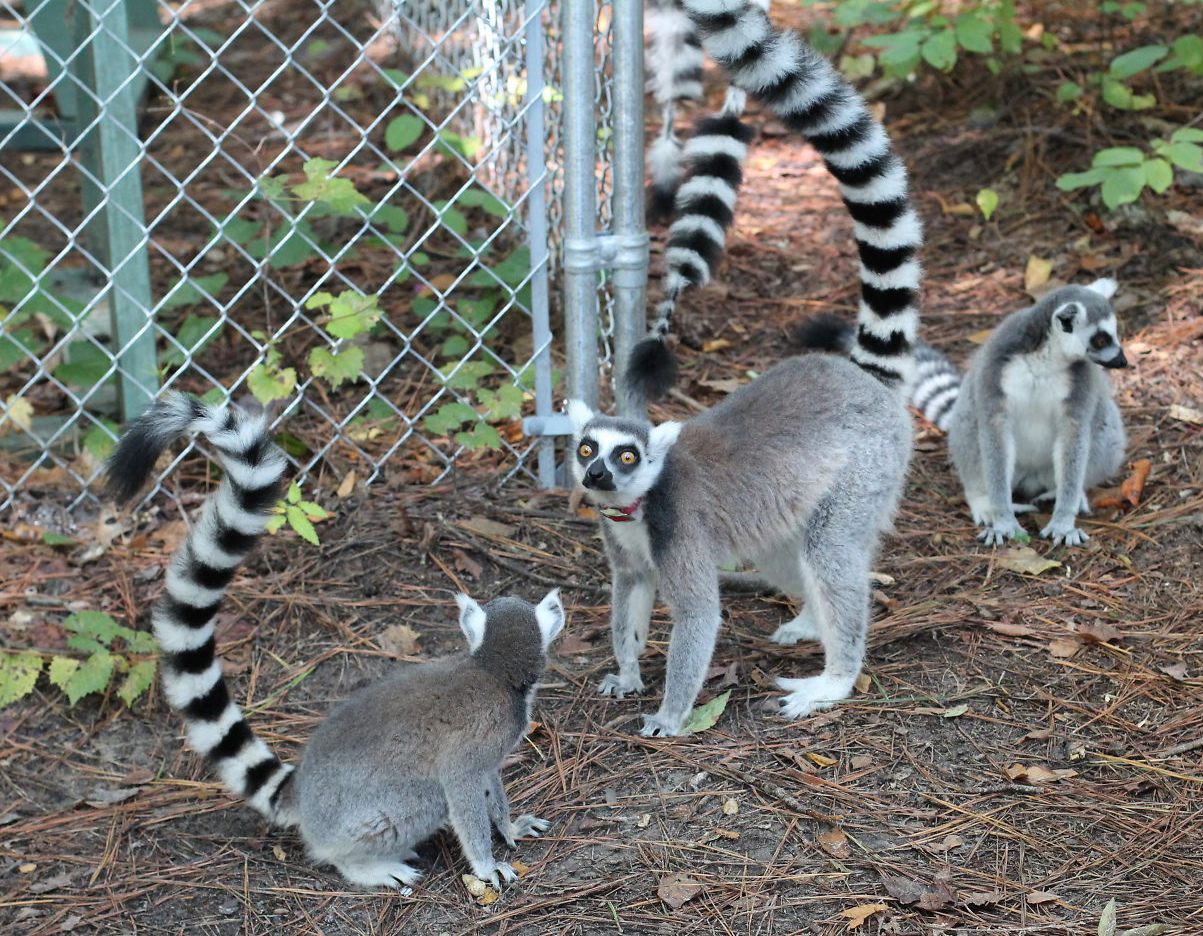 This lemur is aghast that you have not yet visited him. (Photo: bnilsen on Flickr.)
This lemur is aghast that you have not yet visited him. (Photo: bnilsen on Flickr.)
Thick-tailed bush babies, pygmy slow lorises, and ring-tailed lemurs are among the many perpetually wide-eyed prosimians running rampant at Duke University. The sanctuary, located, naturally, on Lemur Lane, is integrated into some of the university’s biology and ecology classes. Non-students can take advantage of one of the regular tours, during which you’ll see around 10 lemur species.
ABU DHABI FALCON HOSPITAL
Abu Dhabi, United Arab Emirates
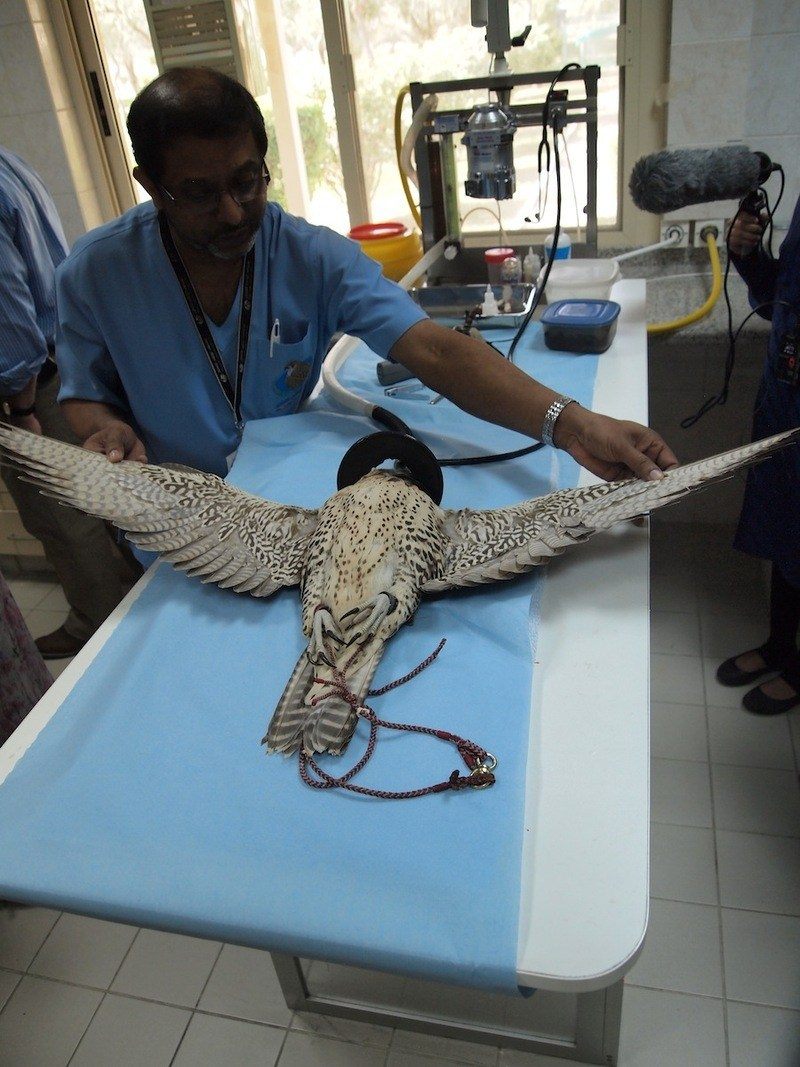 Take these broken wings… (Photo: Eric Elder.)
Take these broken wings… (Photo: Eric Elder.)
Walk into the Falcon Hospital and you’ll see a most unusual sight: birds of prey, seated in rows on astroturf perches, wearing tiny hoods. These falcons are patients awaiting procedures, which could be anything from a talon trim to the bandaging of a broken wing.
AVIARIOS DEL CARIBE - THE SLOTH SANCTUARY
Cahuita, Costa Rica
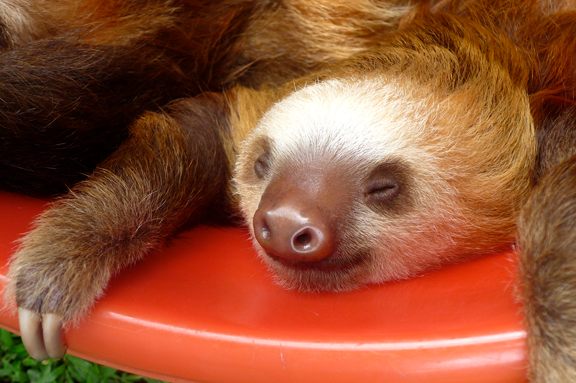
A young sloth snoozing the day away. (Photo: Jenny Jozwiak on Flickr.)
This refuge was established in 1992, after an injured sloth named Buttercup won her way into the founders’ hearts. Since then, hundreds of injured two- and three-toed sloths have passed through the place. Some end up being permanent residents, while others are released back into the wild. An on-site “slothpital” treats sloths who have fallen onto power lines or been hit by cars. In the infant section, tiny, wet-nosed sloths are bathed in buckets and dressed in pajamas made from athletic socks before being placed in incubators.
WOLF CONSERVATION CENTER
South Salem, New York

Atka, a Wolf Ambassador who is utterly unfazed by humans. (Photo: Wolf Conservation Center.)
Time to run with the wolves. Evening howl sessions are among the experiences you can have at the Wolf Conservation Center, located just north of New York City. In addition to conserving critically endangered species such as the Mexican gray wolf and red wolf, the sanctuary is home to “ambassador wolves” who are especially at ease among humans. Their fame goes beyond Salem: Atka, the Arctic gray wolf pictured above, has been known to travel to Brooklyn bars to meet his admirers.
TAT KUANG SI BEAR RESCUE CENTRE
Luang Prabang, Laos
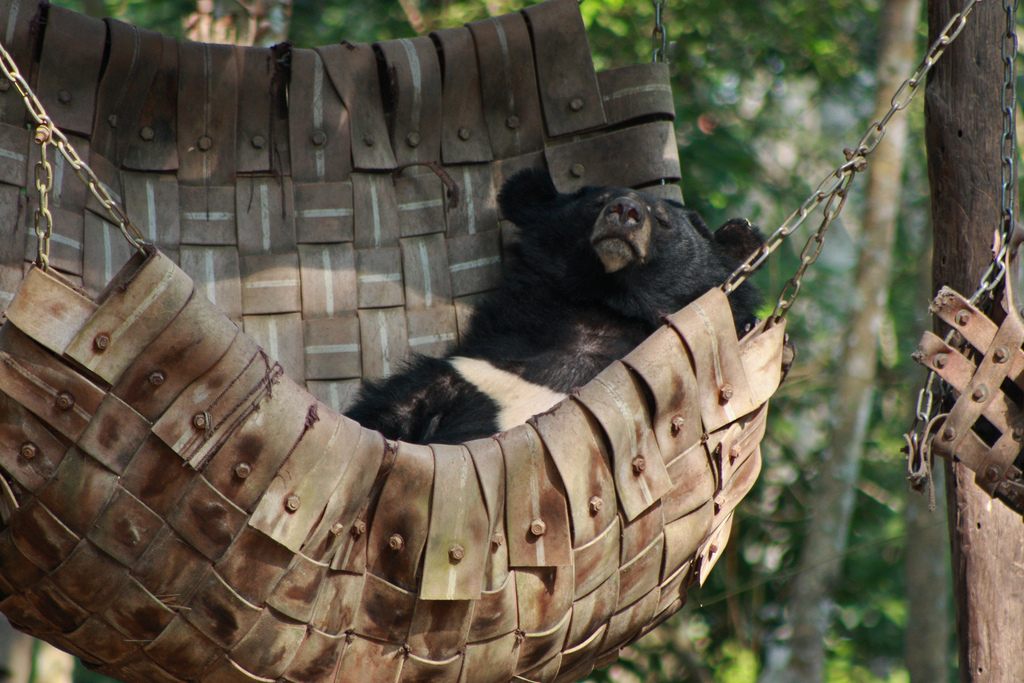
“Welcome to my artisanal latticed hammock, human.” (Photo: istolethetv on Flickr.)
The black bears at this chilled-out sanctuary have been rescued from poachers, who target the animals for their bile—an ingredient used in traditional medicine in China, South Korea, Vietnam, and Laos. Having been spared a life of pain and close confinement at bile farms, the bears live in open enclosures equipped with hammocks, tire swings, and lots of trees. Stroll along the paths and watch them play.
ABBOTSBURY SWANNERY
Dorset, United Kingdom
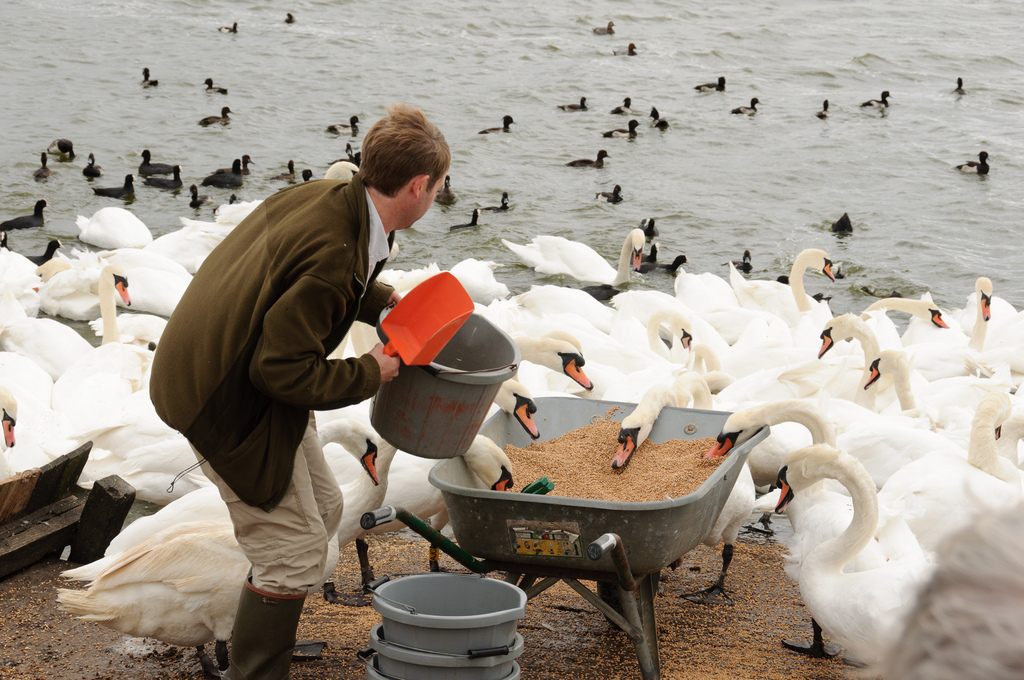
Chow time, longnecks! Get amongst it! (Photo: Richard Gillin on Flickr.)
During the Middle Ages, Abbotsbury Swannery was a producer of the finest swan meat one could cram down one’s gullet. Today, the Dorset establishment is rather more kind to its flock. The swannery is a managed colony of nesting swans, meaning your odds of seeing freshly hatched, adorably confused cygnets are pretty favorable. Visitors are welcome to walk among the birds and hand-feed them.


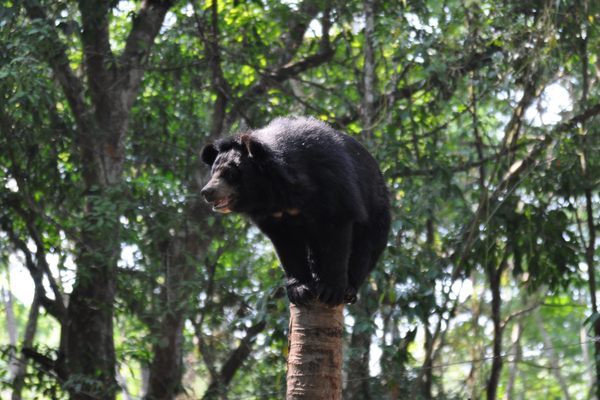
















Follow us on Twitter to get the latest on the world's hidden wonders.
Like us on Facebook to get the latest on the world's hidden wonders.
Follow us on Twitter Like us on Facebook